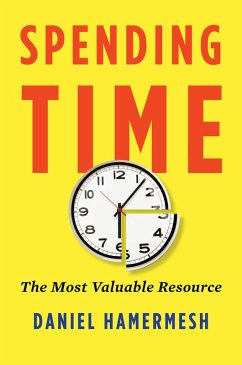Time is the ultimate scarce resource and thus quintessentially a topic for economics, which studies scarcity. Starting with the observation that time is increasingly valuable given competing demands as we have more things we can buy and do, Spending Time provides engaging insights into how people use their time and what determines their decisions about spending their time. That our time is limited by the number of hours in a day, days in a year, and years in our lives means that we face constraints and thus choices that involve trade-offs. We sleep, eat, have fun, watch TV, and not least we work. How much we dedicate to each, and why we do so, is intriguing and no one is better placed to shed light on similarities and differences than Daniel S. Hamermesh, the leading authority on time-use. Here he explores how people use their time, including across countries, regions, cultures, class, and gender. Americans now work more than people in other rich countries, but as recently as the late 1970s they worked no more than others; and they also work longer into older age. Men and women do different things at different times of the day, which affects how well-off they feel. Both the arrival of children and retirement create major shocks to existing time uses, with differences between the sexes. Higher incomes and higher wage rates lead people to hurry more, both on and off the job, and higher wage rates lead people to cut back on activities that take time away from work. Being stressed for time is central to modern life, and Hamermesh shows who is rushed, and why. With Americans working more than people in France, Germany, the U.K., Japan and other rich countries, the book offers a simple but radical proposal for changing Americans' lives and reducing the stress about time.
Dieser Download kann aus rechtlichen Gründen nur mit Rechnungsadresse in A, B, BG, CY, CZ, D, DK, EW, E, FIN, F, GR, HR, H, IRL, I, LT, L, LR, M, NL, PL, P, R, S, SLO, SK ausgeliefert werden.

